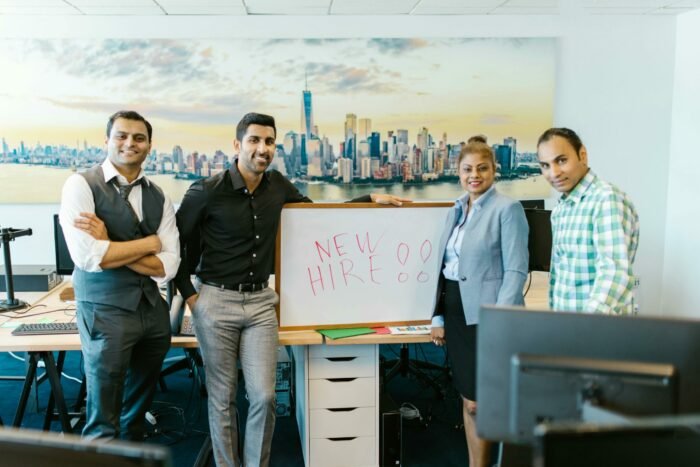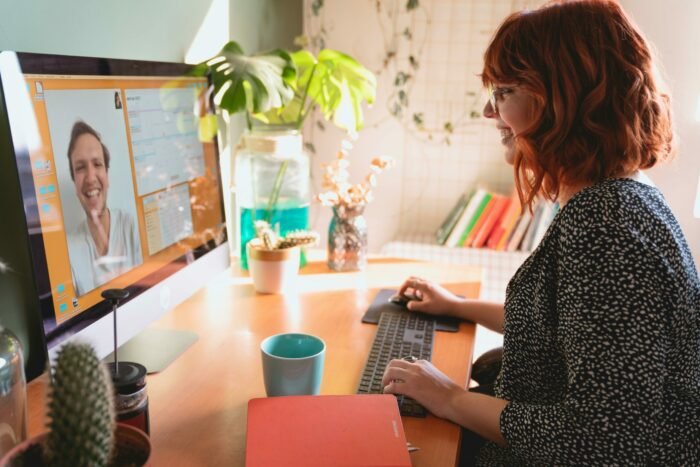Recruiting new employees is a critical function for any organization, and it’s essential to make sure the hiring process is as unbiased as possible. One way to do that is to have diverse interview panels. In this article, we’ll explore the importance of diverse interview panels, why it matters, and how it can improve recruitment outcomes.
How Diverse Interview Panels Improves Recruitment Outcomes
Key Takeaways
- Diverse interview panels can improve recruitment outcomes by reducing unconscious bias and enhancing decision-making.
- Unconscious bias can lead to discriminatory hiring practices and limit the diversity of an organization’s workforce.
- Organizations can promote diversity on their interview panels by selecting members from a range of backgrounds and experiences.
- To ensure unbiased interviews, organizations can provide training on recognizing and mitigating unconscious bias and establish clear evaluation criteria.
- Benefits of having a diverse interview panel include better representation, increased fairness, and a wider range of perspectives and opinions.
What is a diverse interview panel?
A diverse interview panel is a group of people who conduct interviews for job candidates and come from various backgrounds, cultures, and experiences. A diverse panel can include members of different genders, races, ages, nationalities, and abilities.
The Problem with Homogeneous Interview Panels
When interview panels lack diversity, they tend to be homogenous, which can lead to various problems. Unconscious bias, for instance, can creep in, causing the panelists to evaluate candidates based on preconceived notions that are not based on merit. A lack of diverse perspectives can lead to limited thinking and a narrow view of candidates’ skills, experiences, and suitability for the job. The result is poor recruitment outcomes, which can impact the company’s bottom line and reputation.
Why is a diverse interview panel important?
Having a diverse interview panel is critical because it helps reduce the potential for unconscious biases that can arise during the hiring process. Unconscious bias can occur when an interviewer’s personal experiences or beliefs impact their perceptions of job candidates, leading to unintentional discrimination.
A diverse interview panel can help counteract this bias by bringing a variety of perspectives to the interview process. Members of the panel may ask different questions, consider different aspects of a candidate’s background, and offer varying opinions on a candidate’s qualifications, ultimately leading to more informed hiring decisions.
The Benefits of a Diverse Interview Panel
There are several benefits of having a diverse interview panel, including:
1. Enhanced Decision Making
A diverse interview panel provides a wider range of opinions and perspectives, leading to more well-rounded decision-making. When people from different backgrounds collaborate, they can bring unique experiences and ideas to the table, ultimately resulting in better hiring decisions.
2. Improved Representation
A diverse interview panel can help ensure that the organization hires employees who represent a broader range of backgrounds and experiences. This can help increase diversity and inclusion within the workplace, leading to a more dynamic and innovative team.
3. Increased Fairness
By having a diverse interview panel, organizations can help mitigate any unconscious bias and ensure that candidates are evaluated based on their qualifications and skills, rather than their personal characteristics.
How to Create a Diverse Interview Panel?
To create a diverse interview panel, organizations can take the following steps:
1. Identify Key Characteristics
Start by identifying the key characteristics you want represented on the panel, such as gender, race, age, nationality, and abilities.
2. Cast a Wide Net
To ensure a diverse pool of candidates, cast a wide net when recruiting panel members. This can include asking for recommendations from employees, reaching out to professional organizations, or posting on social media.
3. Train Panel Members
Ensure that panel members receive training on how to conduct unbiased interviews and how to recognize and mitigate unconscious bias.
4. Challenges and Solutions
Creating a diverse interview panel can come with its challenges. Resistance to change is one such challenge, as some people may feel uncomfortable working with people from different backgrounds. Lack of awareness and knowledge about the benefits of diversity and inclusion can also hinder the creation of diverse interview panels. Additionally, it is crucial to have leadership and accountability to ensure that the company’s diversity and inclusion efforts are effective.
To overcome these challenges, companies must prioritize diversity and inclusion as a core value. Leaders should champion diversity and hold themselves and others accountable for creating diverse interview panels. Additionally, companies can provide training and resources to help panelists understand the importance of diversity and how to create an inclusive interview process.
Conclusion
Having a diverse interview panel is crucial for ensuring a fair and unbiased hiring process. By bringing a variety of perspectives and experiences to the interview process, organizations can improve their recruitment outcomes and create a more diverse and inclusive workplace.
FAQs
What is unconscious bias, and how does it impact the hiring process?
Unconscious bias is when personal experiences or beliefs impact an interviewer’s perception of a job candidate, leading to unintentional discrimination. It can impact the hiring process by causing interviewers to overlook qualified candidates or unfairly favor certain candidates.
How can a diverse interview panel help mitigate unconscious bias?
A diverse interview panel can bring a variety of perspectives and experiences to the interview process, leading to more informed hiring decisions and reducing the potential for unconscious bias.
What are some characteristics to consider when creating a diverse interview panel?
Some characteristics to consider when creating a diverse interview panel include gender, race, age, nationality, and abilities.
How can organizations ensure that their interview panel members conduct unbiased interviews?
Organizations can ensure that their interview panel members conduct unbiased interviews by providing training on how to recognize and mitigate unconscious bias. They can also establish clear guidelines and criteria for evaluating candidates and encourage panel members to ask open-ended questions that focus on a candidate’s qualifications and skills.
What are some benefits of having a diverse interview panel?
Some benefits of having a diverse interview panel include enhanced decision-making, improved representation, and increased fairness. A diverse panel can bring a wider range of opinions and perspectives, leading to better hiring decisions, and can help ensure that the organization hires employees who represent a broader range of backgrounds and experiences.











